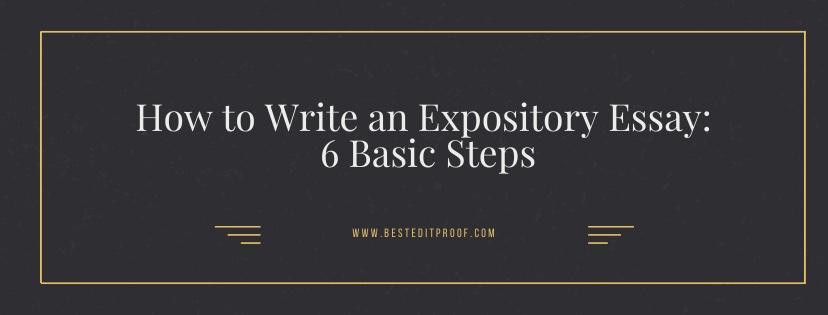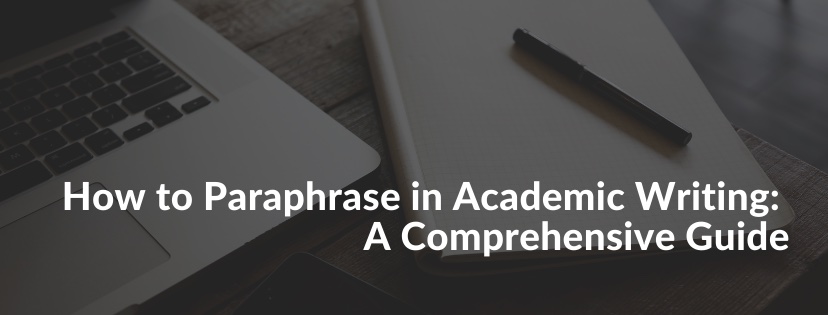Best English Editing and Proofreading Services

A narrative essay is, to an extent, an anomaly in academic writing. Unlike an expository essay, it does not dissuade academic writers from exercising their creative faculties. Nor does it require them to conduct extensive research and be strictly objective in their writing. However, narrative pieces still require academic writers to abide by the fundamental linguistic requirements of academic writing, such as excluding any instances of slang and other “informal” linguistic elements. This article expounds upon the atypical nature of a narrative essay and divulges the steps to write one.
Continue Reading
Essays are a principal component of academic writing. Scholars and students need to write a plethora of essays on a recurring basis as a core requirement of their research or curricula. Depending on the writing purpose, these essays can be persuasive, narrative, descriptive, or expository. This article expounds on expository essays and suggests some helpful steps to write an expository essay.
Continue Reading
Paraphrasing is a regular exercise in academic writing. High school students, college students, and research scholars are required to paraphrase to demonstrate their understanding of a text. However, there are cases when, due to ineffective paraphrasing, instances of plagiarism dot an academic manuscript. Therefore, academic writers must correctly understand the fundamentals of academic paraphrasing and apply them to their writings to avoid any occurrence of any academic offense. This article will peruse the anatomy of academic paraphrasing. In addition, it will examine how paraphrasing is different from summarization and suggest ways to paraphrase effectively.
Continue Reading
When writing for academic or professional purposes, such as writing a research paper or a professional email to the CEO of a firm, people use diction that is far more objective, complex, and meticulous than their everyday language. In other words, they use “formal” language or, to be precise, language that carries a “formal tone.” This article will peruse the definition of “formal tone,” albeit in the context of academic writing. In addition, it will give some helpful tips to aid writers in writing more formally.
Continue Reading
No matter what anyone suggests, you should always get your work edited and proofread. That is a rule that you, as a writer, should always abide by. However, how do you choose the right editing and proofreading services? If you were to go online and search for such services, you would easily come across a dozen such service providers. But how do you recognize which one is right for your needs and which one is reliable? In this article, we will address that question and discuss a few factors that will help you choose the right editing and proofreading services.
Continue Reading
Writing for academic purposes entails writing literature that is formal in tone, objective, structure-wise complex and contains a fair amount of academic jargon. As such, there are certain words and phrases, collectively called taboo words, that academic writers omit when writing manuscripts. Academic writing encourages their elimination to maintain the “formality” of academic documents. This article discusses the definition of taboo words to avoid and examine their use cases.
Continue Reading
Proofreading and editing services play a crucial role in academic writing. You can, of course, self-edit and proofread, but it is always a better alternative to rely on professional services. In this case, consulting a professional proofreading and editing service to make your academic work flawless and more attractive is a smart decision. However, one of the main concerns people have while going for these services is that they are not aware of how much they will cost or what the pricing strategy is. In this article, we will offer you a detailed guide of how much professional editing and proofreading services cost and the main pricing strategies.
Continue Reading
A thesis statement is the main academic argument of the thesis that distills the central idea of the study informing the readers about your stance on your thesis topic and is therefore an integral part of writing the thesis. When writing a thesis statement, there are several contentions regarding the right approach. And understandably so, for there are no definite writing rules. But there certainly are writing best practices. In this article, we will look at some of these best practices and how you can leverage them to write a formidable thesis statement. But prior to that, let’s understand what a thesis statement is.
Continue Reading
For every academic scholar, whether a high school student or a doctoral candidate, understanding the different types of academic writing and knowing when and how to implement them is crucial. Academic writing is broadly classified into 4 distinct categories: analytical, descriptive, persuasive, and critical writing. Each of these categories has certain defining features and different purposes; however, an academic document can feature the usage of more than one of these types in conjunction.
Continue Reading
Maintaining parallel structure prevents writers from making grammatically incorrect sentences and helps them to improve their writing styles. Although lack of parallelism is not always strictly incorrect, sentences with the parallel structure are easier to read and add a sense of balance to your academic writing. In this article, we will focus on what is parallel structure and how to use parallel structure in academic writing.
Continue Reading
If you are just starting with academic writing, you may feel overwhelmed by the pressure that academic writing usually imposes. However, as demanding as it may seem, you can easily master academic writing if you know the right rules to follow. This article particularly reaches out to beginners in academic writing to help you master this form of writing. Here, we will go through the basic language rules that apply to all kinds of academic writing (generally) and will help you master it in no time.
Continue Reading
Academic writing requires precision and accuracy, with special attention to formats and writing style. Therefore, being careless in this case is not an option. But even though it is such a meticulous form of writing, enough practice and the right advice can help you skillfully master it. Proofreading (and editing) is one such means to achieve perfection in academic writing. If you ever wonder whether proofreading and editing are required for academic writing, the answer is yes. Without them, you will not be able to reach the full potential of your work. Therefore, if you are thinking of getting started with it for your academic writing, here is a good place to begin.
Continue Reading
Academic writing should be free of all errors and grammatical mistakes to ensure accuracy and professionalism. However, now and then, you come across an error while correcting your work that makes it all extremely difficult — dangling modifiers. What exactly are these, and how can you fix dangling modifiers so that your piece of academic work is perfect in all sense? Don’t worry, as we have the perfect guide to help you through it. In this article, we will cover how you can masterfully eliminate them.
Continue Reading
Writing a thesis can be an overwhelming task for many college and graduate students. Managing all the elements associated with a thesis while ensuring that the quality is not compromised can be challenging. However, what is even more strenuous is deciding on a thesis's layout. "How to structure a thesis" is a question that several final-year students struggle to answer. And understandably so, as all colleges and universities have their guidelines for drafting a thesis. However, there is an immutable structure that's common for every thesis. In this brief guide, we will take a look at this structure and analyze each of its components.
Continue Reading
It is not uncommon for individuals, academic and nonacademic to use “thesis” and “research paper” interchangeably. However, while the thesis vs. research paper puzzle might seem amusing to some, for graduate, postgraduate and doctoral students, knowing the differences between the two is crucial. Not only does a clear demarcation of the two terms help you acquire a precise approach toward writing each of them, but it also helps you keep in mind the subtle nuances that go into creating the two documents. This brief guide discusses the main difference between a thesis and a research paper.
Continue Reading